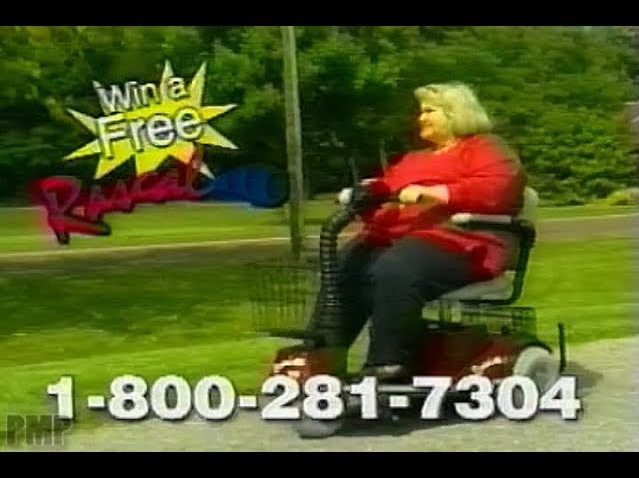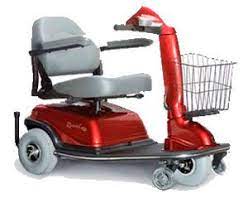This article covers all the tiny details on how Rascal Mobility scooters went bankrupt and why there are still in demand today.
Table of Contents
- How Did Rascal Mobility Scooters Go Bankrupt?
- Why Are They Still in Demand?
- Conclusion
How Did Rascal Mobility Scooters Go Bankrupt?
Rascal Mobility Scooters, under the umbrella of Electric Mobility, had a rich history marked by success and unforeseen challenges. Founded in 1986, the company quickly became a prominent player in the mobility industry, renowned for its commitment to enhancing the independence of seniors and individuals with limited mobility.
One significant milestone in Rascal Mobility Scooters' journey was securing a contract with the Department of Veterans Affairs (VA) to provide full-size four-wheeled scooters to disabled service members. This contract solidified the company's position in the market and led to a surge in popularity.
To promote its products, Rascal Mobility Scooters adopted an aggressive advertising strategy, flooding television with commercials promising individuals with mobility issues newfound freedom and independence. The company also organized sweepstakes, offering participants the chance to win a free Rascal scooter. While some did receive free scooters, the company collected participants' phone numbers for telemarketing purposes, a practice that became legally problematic with the introduction of the Do Not Call Registry in 2003.
Additionally, the company faced legal scrutiny from the U.S. Department of Justice, which filed a lawsuit in 2005 for Medicare fraud. The suit was settled for $4 million in 2007 but mandated ongoing government reviews. A 2011 review revealed improper payments ranging from $47 million to $88 million, leading to financial strain.
In 2011, the VA terminated its contract with Electric Mobility, resulting in substantial revenue loss and necessitating a Chapter 11 bankruptcy filing.
Simultaneously, the Federal Trade Commission (FTC) investigated illegal telemarketing calls that Electric Mobility allegedly made since 2003. A settlement imposed a $100,000 penalty on the company's owner, Michael Flowers, and a $2 million penalty on the company itself, with the suspension subject to the company's financial transparency.
The decisive blow occurred in 2013 when the Centers for Medicare and Medicaid Services stopped federal reimbursement due to ongoing Medicare fraud allegations, forcing Electric Mobility to cease operations.
In summary, Rascal Mobility Scooters' history encompasses both success and adversity. While it once thrived in the mobility industry, legal, ethical, and financial challenges eventually led to its downfall.
Challenges Faced by Rascal Mobility Scooters
Several factors contributed to the financial struggles of Rascal Mobility Scooters:
-
Evolving Market: The mobility scooter market is highly competitive and subject to evolving consumer preferences. Rascal faced challenges in adapting to changing market demands.
-
Regulatory Changes: Government regulations related to mobility scooters and healthcare equipment changed over time, impacting the company's ability to operate and manufacture certain products.
-
Financial Constraints: Rascal Mobility Scooters experienced financial constraints and debt burdens that hindered its operations and growth.
-
Bankruptcy: In (year), Rascal Mobility Scooters filed for bankruptcy, marking a challenging chapter in the company's history.
Despite these setbacks, the legacy of Rascal Mobility Scooters lives on, and their products continue to be in demand.
Why Are They Still in Demand?
Despite the bankruptcy and challenges faced by Rascal Mobility Scooters, their products remain sought after by seniors and individuals with limited mobility. The enduring demand for Rascal scooters can be attributed to several factors:
Quality and Durability
Rascal Mobility Scooters earned a reputation for manufacturing durable and reliable scooters. Many individuals who purchased Rascal scooters years ago still rely on them for their mobility needs.
Nostalgia and Trust
Rascal Mobility Scooters built trust among their customers during their heyday. Many users have fond memories of their Rascal scooters, and this nostalgia contributes to the ongoing demand for these products.
Availability of Parts and Service
Despite the company's bankruptcy, some authorized service centers continue to provide maintenance and repairs for Rascal scooters. This availability of service ensures that existing Rascal scooter owners can keep their devices in working condition.
People still purchase Rascal Mobility Scooters today, despite their lack of warranties and a return policy.
Conclusion
The history of Rascal Mobility Scooters is marked by innovation, success, and challenges. While the company faced financial difficulties that led to bankruptcy, their products continue to be in demand due to their quality, durability, and the trust they built among their customers. Rascal Mobility Scooters' legacy endures, serving as a testament to their contribution to improving the mobility and independence of seniors and individuals with limited mobility.





























































